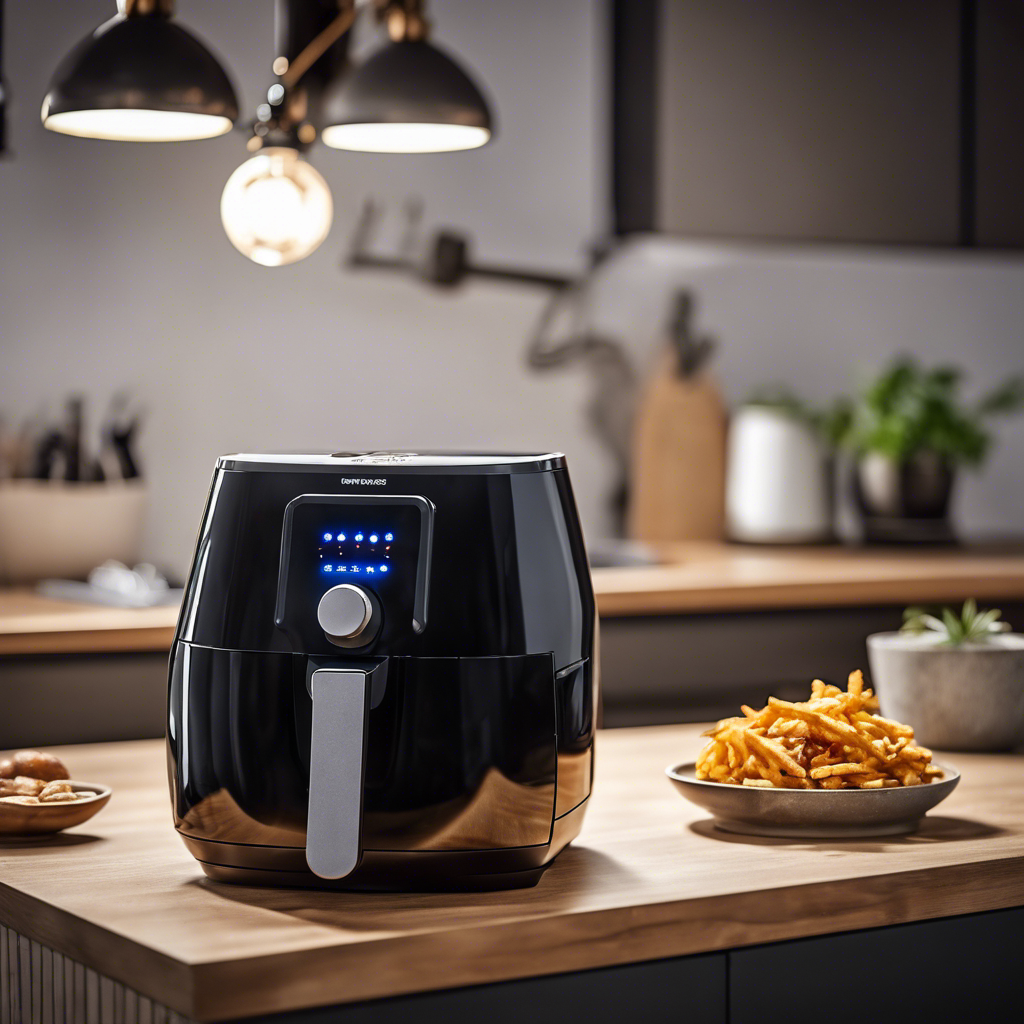Air fryers have revolutionized the way we cook, offering a healthier alternative to traditional frying methods. But as with any popular kitchen gadget, it's important to consider both the pros and cons. In this comprehensive guide, we'll explore whether there's a downside to using air fryers.
Key Takeaways:
- Air fryers offer a healthier alternative to traditional frying but may have some downsides.
- Potential issues include limited capacity, quality concerns, and the possibility of harmful compounds.
- Understanding the full scope of air fryer pros and cons can help consumers make informed decisions.
The Basics of Air Frying
Air fryers work by circulating hot air around food to create a crispy exterior, mimicking the results of deep-frying but with significantly less oil. This method has been lauded for its ability to reduce calorie intake and provide a healthier cooking alternative. However, the question remains: are there any drawbacks to this seemingly perfect appliance?
Capacity Concerns
One of the primary downsides of air fryers is their capacity. Most air fryers on the market are designed to cater to small to medium-sized families, which means cooking in batches is often necessary for larger gatherings. This can be time-consuming and less efficient, especially when compared to cooking a larger quantity of food in a conventional oven or deep fryer.
Quality and Durability
When it comes to air fryers, the quality and durability can vary greatly depending on the brand and model. Some users have reported issues with non-stick coatings peeling off or the appliance failing after a short period of use. It's essential to research and invest in a high-quality air fryer to avoid these potential problems.
Nutritional Considerations
While air frying is healthier than traditional frying, it's important to note that it doesn't make fried foods a health food. Overconsumption of even air-fried foods can lead to an unbalanced diet. Additionally, some studies suggest that high temperatures can cause the formation of harmful compounds like acrylamide, which is something to be mindful of when using an air fryer.
The Learning Curve
New air fryer users may face a learning curve. Unlike conventional cooking methods, air frying requires a bit of trial and error to get the cooking times and temperatures just right. This can lead to undercooked or overcooked meals, which can be frustrating for those who are not accustomed to this style of cooking.
Energy Efficiency
Air fryers are often marketed as being more energy-efficient than ovens. However, this may not always be the case, especially for larger air fryers that require more power. It's important to compare the energy consumption of an air fryer with that of a conventional oven to determine if there's a real benefit.
Noise and Smell
Air fryers can be noisy during operation, which may be a nuisance for some users. Additionally, they can sometimes emit a strong smell during cooking, particularly when cooking foods with a high-fat content. Proper ventilation and regular cleaning can help mitigate these issues.
Safety Concerns
Safety is another consideration when using an air fryer. The exterior can become quite hot, and the risk of burns is present if one is not careful. It's crucial to follow the manufacturer's instructions and use oven mitts when handling the basket or tray.
Cleaning and Maintenance
Cleaning an air fryer can be a hassle. While many models have dishwasher-safe parts, the main unit itself can accumulate grease and food particles, requiring regular cleaning to maintain optimal performance and hygiene.
Cost and Value
Air fryers can be an investment, with some high-end models costing several hundred dollars. It's important to weigh the cost against the value you'll get from the appliance, considering how often you'll use it and the benefits it provides.
The Environmental Impact
Lastly, the environmental impact of air fryers is a concern for eco-conscious consumers. The production, usage, and eventual disposal of these appliances contribute to environmental degradation. Choosing a durable model and using it responsibly can help minimize this impact.
Summary
Air fryers have brought a new dimension to home cooking, offering a healthier way to enjoy fried foods. However, they come with their own set of downsides, including capacity limitations, variable quality, and potential health concerns. By being aware of these issues, consumers can make informed decisions about incorporating air fryers into their kitchens.
FAQ Section
Q: Can air fryers completely replace traditional ovens or deep fryers? A: Air fryers are a great addition to the kitchen but may not completely replace traditional ovens or deep fryers due to their smaller capacity and specific cooking method.
Q: Are air-fried foods completely healthy? A: Air-fried foods are healthier than deep-fried alternatives due to lower fat content, but they should still be consumed in moderation as part of a balanced diet.
Q: How do I choose a high-quality air fryer? A: Look for air fryers with positive reviews, reliable customer service, and warranties. Consider the appliance's capacity, settings, and any additional features that suit your cooking needs.







